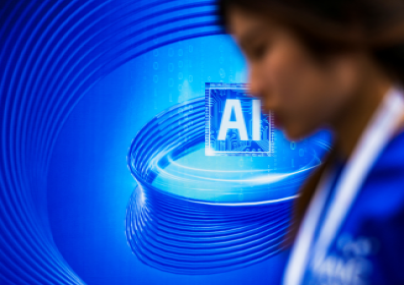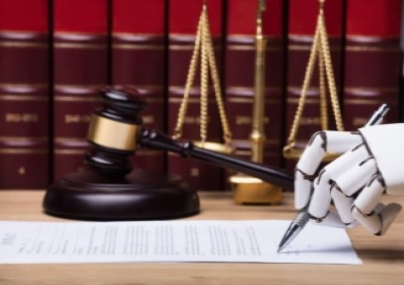
Artificial intelligence (AI) is unanimously the top tech trend in the legal space, particularly in because of its applicability and practicability, and Herbert Smith Freehills has been one of earliest adopters. HSF CEO Mark Rigotti talks about AI, its future uses, client concerns and how to prepare the next generation of lawyers to use the technology.
Some firms have already started to experiment with AI for due diligence, discovery, document automation and risk analysis, but what are some of the other applications of AI in the future?
For us, ultimately it's always about the clients. So speculation around next-generation applications must be linked to how we support our client needs. Our definition of AI is wide – we see it as a broad ecosystem of technologies that can improve our efficiencies and value offering by either replacing or enhancing human involvement. Therefore, innovation and technology is already very much a core part of our firm's clients, sectors and products strategy.
In the legal industry, we believe a number of AI tools will be commonplace in the next three to five years, which is why we're already piloting a number of varied technologies now. To try and answer your question, we believe AI will be especially powerful when it uses big data. There are huge opportunities, as well as consequences, flowing from the fact that technology has enabled us to collect, store and process data on a vast scale.
Data breaches count among the biggest concerns clients have about law firms using AI. What is your firm doing to reassure clients?
We are very conscious of cybersecurity and data protection issues, and work with clients to ensure that these issues are addressed collaboratively. Our teams direct a massive amount of effort to protecting our clients' data, putting defences in place, and making and testing response plans for any kind of incident.
The current AI offerings of document automation, improved due diligence processing and machine-learning tools enable us to speed up key processes to enable us to support our clients' business decisions more effectively. However, in order to get maximum benefit, these tools often require access to vast amounts of firm and client data, and often through shared access with client. We, therefore, must always be vigilant in the protection of both our own and our client's data.
HSF has been one of the law firm pioneers for AI adoption. How has the experience been so far, and what kind of feedback have you received from lawyers using it?
We've focused on adapting the best tools out there to meet our clients' needs and to increase efficiency and value. Right now, we are using AI tools for due diligence, document automation, risk assessment, and e-discovery, to name just a few areas. Our lawyers and technologists are leading these innovations globally and we've had a positive response.
We believe rather than technology replacing lawyers, it can make them more productive and innovative, and they have embraced taking control of technology in this way. These tools are and will continue to be crucial in providing solutions for clients, but only if embedded within excellent legal teams and enhanced by our people in alternative legal services, legal project management, and knowledge and learning. Without our input and experience, AI are just tools – it's up to us as lawyers to add the value.
Law schools at the moment aren’t teaching students to work with technologies like AI. What could the future generation of lawyers do to be ready to work with AI technology?
Our future lawyers are responding to both the digital revolution and the changing business landscape – changes in client demands, pressures on pricing, and complex regulatory frameworks. This is not new. We're also seeing growth in smart contracts and blockchain technology which will see our clients and the legal profession embracing new business models very quickly.
Response to change will have to be quicker and more collaborative. So, therefore, it's not just up to law schools to respond to the changing landscape it's also up to us to develop and guide a reshaped the talent pool. Our clients expect that their legal providers should leverage new technologies and deliver the brightest human talent.
As technology removes the document-heavy manual tasks, junior lawyers will spend more time alongside senior lawyers on client interaction, strategy and response than they might do currently – this is almost a return to the apprenticeship model which has been struggling in recent times as complexity of transactions and cases has required more lawyer layers to be deployed.
As a profession, we need to reshape the entire training cycle to ensure they're ready for that responsibility at an earlier stage, and have both the legal and business skills required.



